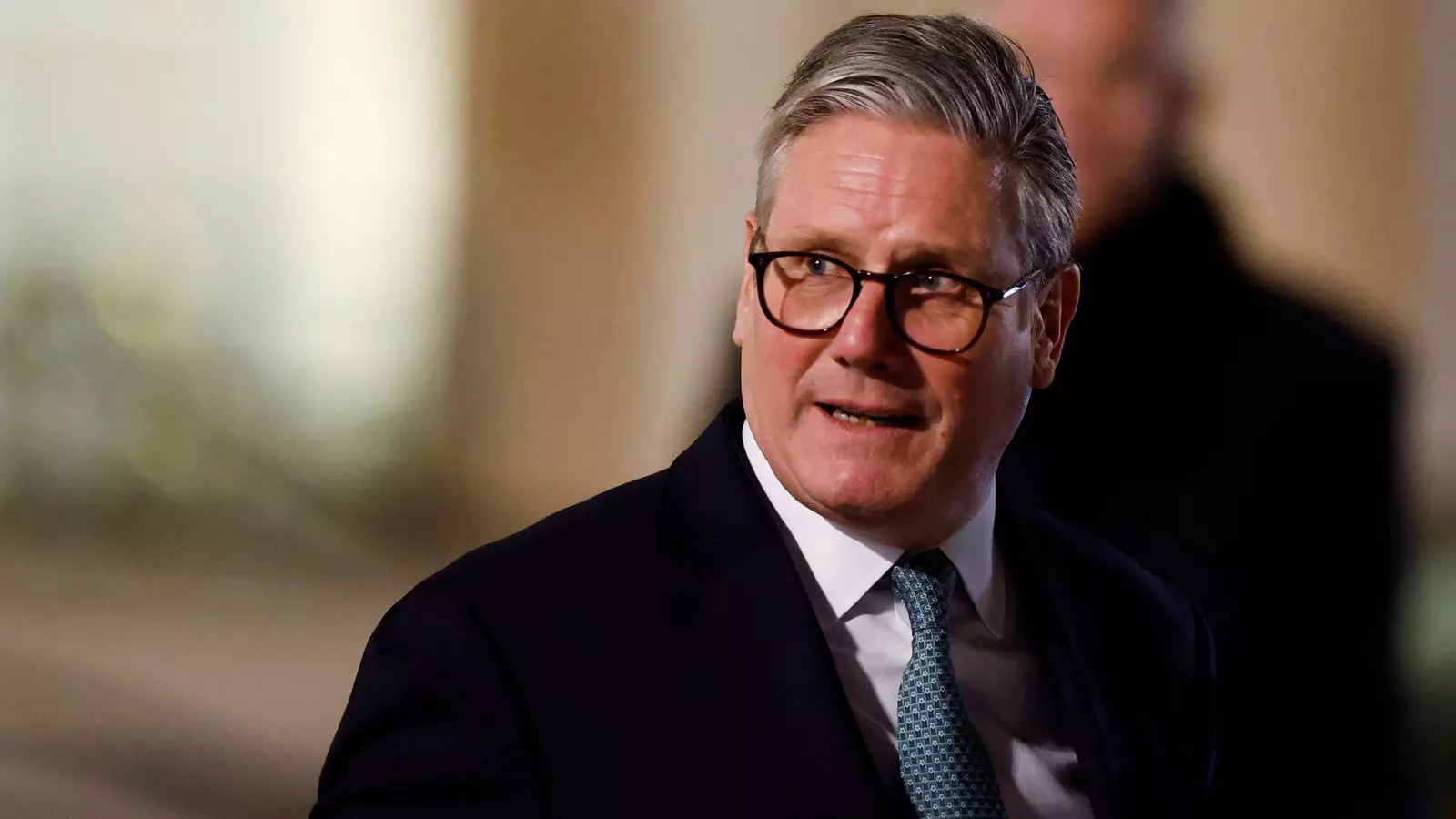The landscape of international relations is often shaped by the actions and words of influential leaders. Recently, UK opposition leader Sir Keir Starmer has made headlines by calling on former President Donald Trump to reaffirm the United States’ commitment to Ukraine. His remarks come at a time of increasing concern regarding the geopolitical stability in Eastern Europe, particularly in the wake of Russia’s persistent aggression. As tensions escalate and negotiations falter, the implications of a robust security guarantee for Ukraine are crucial. An analysis of Sir Keir’s statements emphasizes the importance of international alliances and the potential fallout from poorly conceived peace arrangements.
Sir Keir Starmer passionately warned against settling for a peace deal that does not adequately address the underlying threats posed by Russia. “A peace deal which does not stop Putin from attacking again would be a disaster for everyone,” he asserted, underscoring the dire consequences such an oversimplified agreement could entail. His perspective aligns with a growing apprehension that any compromise without genuine assurances could leave Ukraine vulnerable to renewed aggression. The potential for a “bad peace deal” to pave the way for further conflict transcends mere rhetoric; it reflects an understanding of the complex realities on the ground, where lasting peace requires not just dialogue but also a commitment to upholding the sovereignty and security of nations embroiled in conflict.
The international community bears responsibility in this respect, as negotiations currently taking place in Saudi Arabia lack Ukrainian representation. The absence of key stakeholders such as President Zelenskyy raises significant questions about the legitimacy and efficacy of these discussions. Starmer’s insistence that Ukraine must have a decisive voice in negotiations highlights the critical need for a Ukraine-centered approach to peace talks. The failure to involve Ukraine directly could lead to outcomes that not only disregard their interests but could also exacerbate existing tensions further.
A core part of Starmer’s argument is the necessity for strong security guarantees to ensure that any peace achieved is sustainable. He emphasized that the US must play a pivotal role in these guarantees. Such support could involve commitments like enhancing air defense systems or reinforcing NATO’s collective defense mechanisms should Russia expand its territorial ambitions. The clarity of this requirement reflects a broader consensus among European leaders—that any peace plan must be backed by tangible measures to deter future aggression.
Moreover, discussions about enhancing Britain’s defense spending resonate within the narrative of collective security. Sir Keir has indicated openness to increase UK defense contributions and suggested that British troops could participate in a European peacekeeping force post-agreement. This perspective is significant, as it aligns defense strategies within NATO’s framework, further cementing the idea that collective security should be paramount in navigating the challenges posed by the Kremlin.
As the third anniversary of Russia’s full-scale invasion of Ukraine looms, the urgency for a united front against aggression becomes even more apparent. The UK’s increasing defense budget from 2.3% to 2.5% of GDP signifies a necessary commitment, especially amid pressures for European nations to take more responsibility for their security. Starmer’s upcoming trip to Washington aims not only to confirm this timeline but to reinforce transatlantic ties that are showing signs of strain following Trump’s recent disparaging remarks about Ukraine’s leadership.
In an era where populism and isolationism pose risks to international cooperation, leaders like Sir Keir serve as vital advocates for staunch support of democracy and the rule of law in Eastern Europe. Their advocacy for the Ukrainian cause must continue to resonate beyond government halls and into public consciousness, demonstrating that global peace is inextricably linked to the defense of sovereign rights.
The call for support and security guarantees in Ukraine represents more than a political maneuver; it is a commitment to collective stability in the face of aggression. As conflicts evolve, global leaders must remain vigilant and united in their resolve, ensuring that any resolution to the situation in Ukraine not only brings peace but also secures a foundation for a safer future. The complexity of these negotiations underscores the importance of thoughtful diplomacy and proactive defense strategies in avoiding the pitfalls of an insecure peace.


Leave a Reply